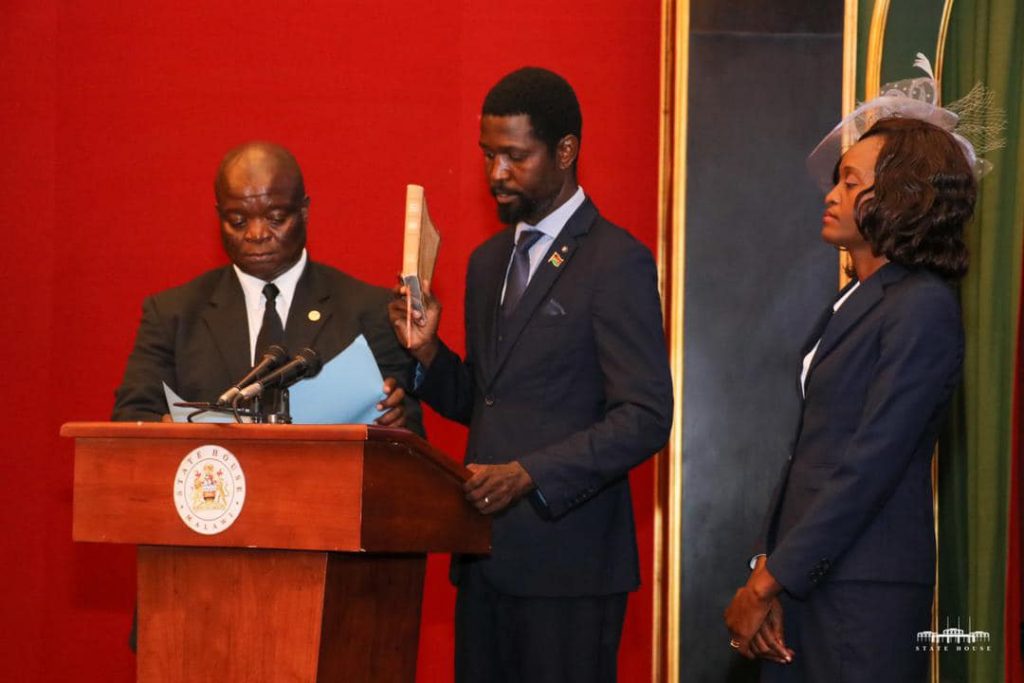Joyce Zinzanani of Fayiti Village in Ntcheu District could not sustain economic gains because of frequent breakdown in sanitation and hygiene at her house.
The family of nine could go for months without a toilet as the one they erected kept falling every three months.
Strong toilet like this one are a rare sight in most areas
“Most times, we could answer the call of nature in nearby bushes,” Zinzanani says.
The open defaecation increased the family’s vulnerability to waterborne diseases.
Zinzanani recalls: “My children have been struck by diarrhoea annually. They were malnourished, too. This forced me to spend my income from small-scale businesses on frequent hospital visits.”
Coupled with poor hygiene practices, exposure to faecal matter remains a leading cause of child mortality, morbidity, under nutrition and stunting, and can negatively impact their cognitive development, reports United Nations Children’s Fund (Unicef).
Zinzanani’s situation was common among the other 359 households in this part of Traditional Authority (T/A) Phambala due to lack of expertise and materials to erect sturdy toilets.
Group village head Fayiti says deforestation exacerbated by charcoal production has took away indigenous trees they used to build long lasting toilets.
“Mpangala and mikalati trees are long gone. What we have now break easily and toilets are collapsing in no time, forcing men to erect toilets frequently,” he says.
To promote sanitation and hygiene, World Vision Malawi through its water, sanitation and hygiene (Wash) intervention, introduced corbelled pit latrine that the locals christened Mwamuna Apumule as it can last for over 25 years, giving men a break from digging and building latrines every year.
The resilient toilets are built using baked bricks from the bottom to the covering of the pit. The Christian organisation equipped 15 artisans in erection of the latrines in the area.
Zinzanani, who is a member of Tiwale Village Savings and Loans (VSL) Group, will now have the improved toilet built for her family.
This follows a decision by the group to support its 23 members to have the toilet for enhanced sanitation and sustainable economic development.
The mother of seven envisions improved sanitation and hygiene for her family.
“We will have good health. The waterborne diseases will be history. I will strictly use the income on developing our home and supporting my children to thrive in life,” she says.
The group’s chairperson Bertha Pangani says they want to contribute to efforts of curbing open defaecation in the area.
“We are joining households that have these toilets. The hygiene will keep us healthy, allowing us to work hard on development activities,” she says.
Pangani, a mother of six, says by end of 2023, they have planned that every member’s household should have a toilet.
One of the trained artisans helping the women to build the latrines, Luke Yotamu, says the design is making more households to have toilets.
“Open defaecation is being reduced,” he says.
Aene Maseya, Mtonda Health Centre’s senior health surveillance assistant, says the initiative complements their efforts to fight waterborne diseases, including cholera by promoting sanitation.
World Vision reports that over 15 670 households in the Kapeni Area Programme have access to modern toilets with tippy-tap hand-washing facilities and drop-hole covers. The organisation’s Wash dev e l opment f a c i l i t a tor Gertrude Malefula says they are committed to help people embrace the latrines for safe environment
The post Women for resilient toilets first appeared on The Nation Online.
The post Women for resilient toilets appeared first on The Nation Online.
 Moni Malawi
Moni Malawi 

